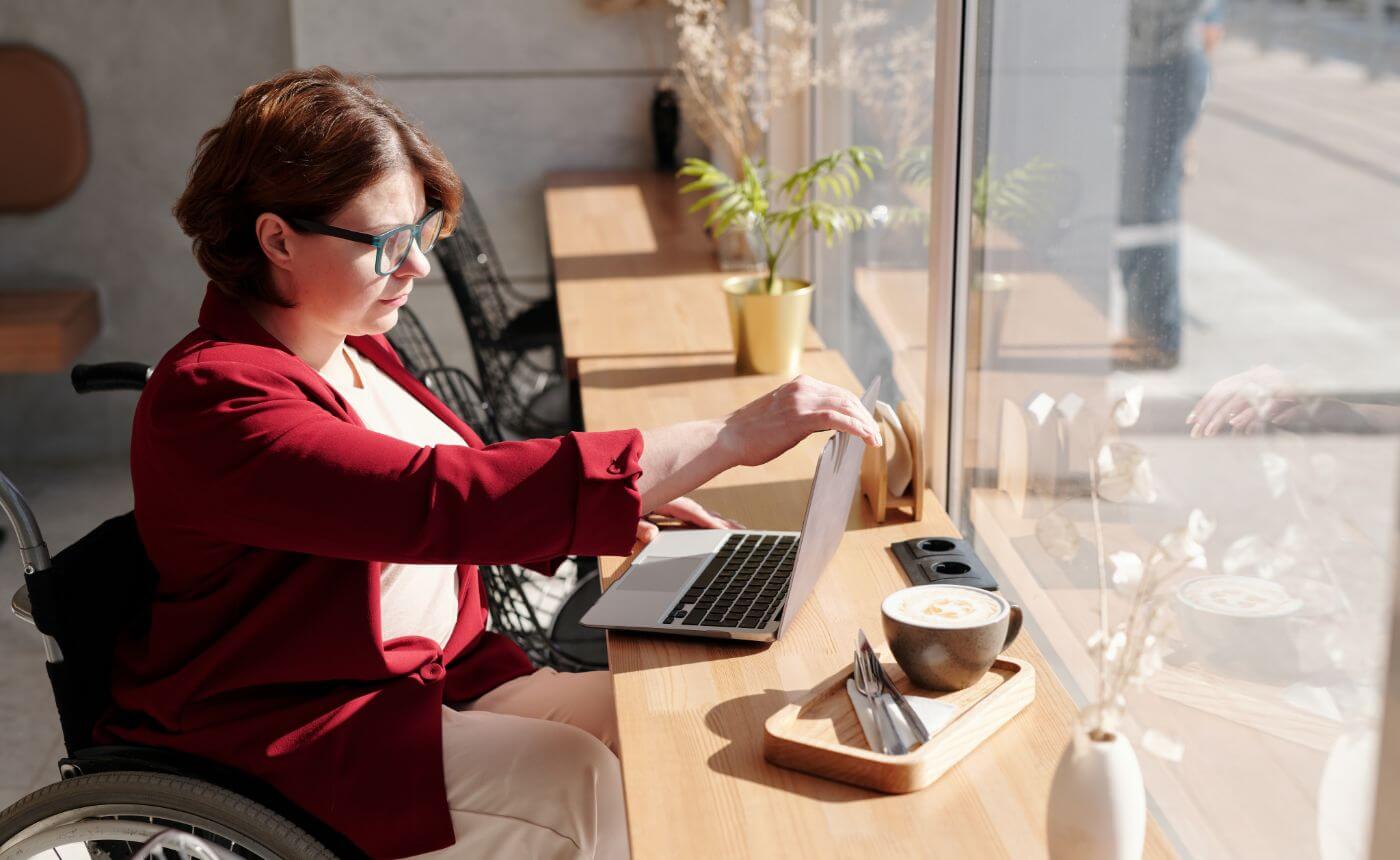Whenever I see a new job advertisement, there is always one major barrier that prevents me from applying: accessibility.
As a disabled person, most employment opportunities just aren’t accessible to me.
My name is Emma, I’m a writer, a volunteer and I have a degree in Health and Social Care from The University of Derby. I have Cerebral Palsy and I am an electric wheelchair user and for me, trying to find a job has been impossible.
I could be fully qualified and yet, I still can’t apply because so many jobs require travel, are in an inaccessible building or are only partially remote roles.
I want this to change.
I want employers to realise the barriers they are creating that prevent disabled and chronically ill people from gaining employment – and work with us to remove them.
Now, when I investigate a job, I am met by a multitude of endless barriers. So much that I often end up clicking the link away.

The situation is unfair, unequal and drastically needs lasting action and reform.
I have had great voluntary roles and a part-time job on the weekends during university; however, I can’t seem to replicate this in a full time, employed role.
Disabled and chronically ill people have the skills, the drive and ambition; we just need to be given the chance.
I hope that one day, instead of receiving a reply of “Unfortunately, the role requires x, y and z,” I’ll get a “We’ll change this so that you if you are successful, we can accommodate your work needs and we’ll support you throughout.”
It might seem like a small thing, but it would make such a difference to the process. I understand if I am genuinely not the right person for the role, but I shouldn’t miss out when all it takes is someone asking what I need to be able to be put in place to perform it.
Remote working shouldn’t be a short-term compromise that we have to ask for, or need to do due to an emergency situation but, a standard, built in option that is just enacted.
We need the support of businesses and employers, but, they aren’t the only people I hope will get behind us.
We need the government to greater prioritise accessibility in all areas of everyday life: transportation, hospitals, businesses being just a few examples.
If the infrastructure is there, and the equipment and the tools that I need are provided for me, it means I can do my job effectively, contribute, and maybe make a difference to how a company runs overall.
If this is achieved, it means that one day, there could be an easier commute, more Changing Places toilets, remote working from home or a desired workplace.
It means that one day, someone could secure employment without any access issues whatsoever.
I know I won’t wake up tomorrow to endless job offers but, I want it to be possible for someone to achieve their chosen career path without the fear of instant rejection before they have even applied.
There are future employees just waiting for the tide to turn. To employers: if you are reading this, please give me and other disabled and chronically ill people the same opportunities that I am sure you were given.
To be able to work, I personally need a few simple things to be in place; an accessible office with an accessible desk that my electric chair can get under, and an accessible toilet with an overhead hoist.
I can’t transfer out of my chair.
This may come as a shock, but we are not all the same.
What I need to go to work versus what someone else may need could be vastly different, therefore it is so important for to keep an open mind and be receptive to change.
If this piece convinces anyone to hire someone today, to improve the workplace, to look at implementing flexible and remote working, then I will have done my job.
To anyone who like me, is still trying to find something that’s right for them, please don’t give up.
It is tough, and at times it may seem like there isn’t a clear path to get to where you want to be but, I know we’ll find it.
I don’t know how long it will take, whether it will be the route we want to take or something entirely new, however, if we work together, we can create a real, long-term change for everyone.
When I pitched this article, I wanted to get a message out there and I hope that I have done so.
I wanted to convey that it is not as difficult as people may think to enact simple and meaningful changes within the workplace and wider society.
I know it isn’t easy, but at least it’s a starting point.



